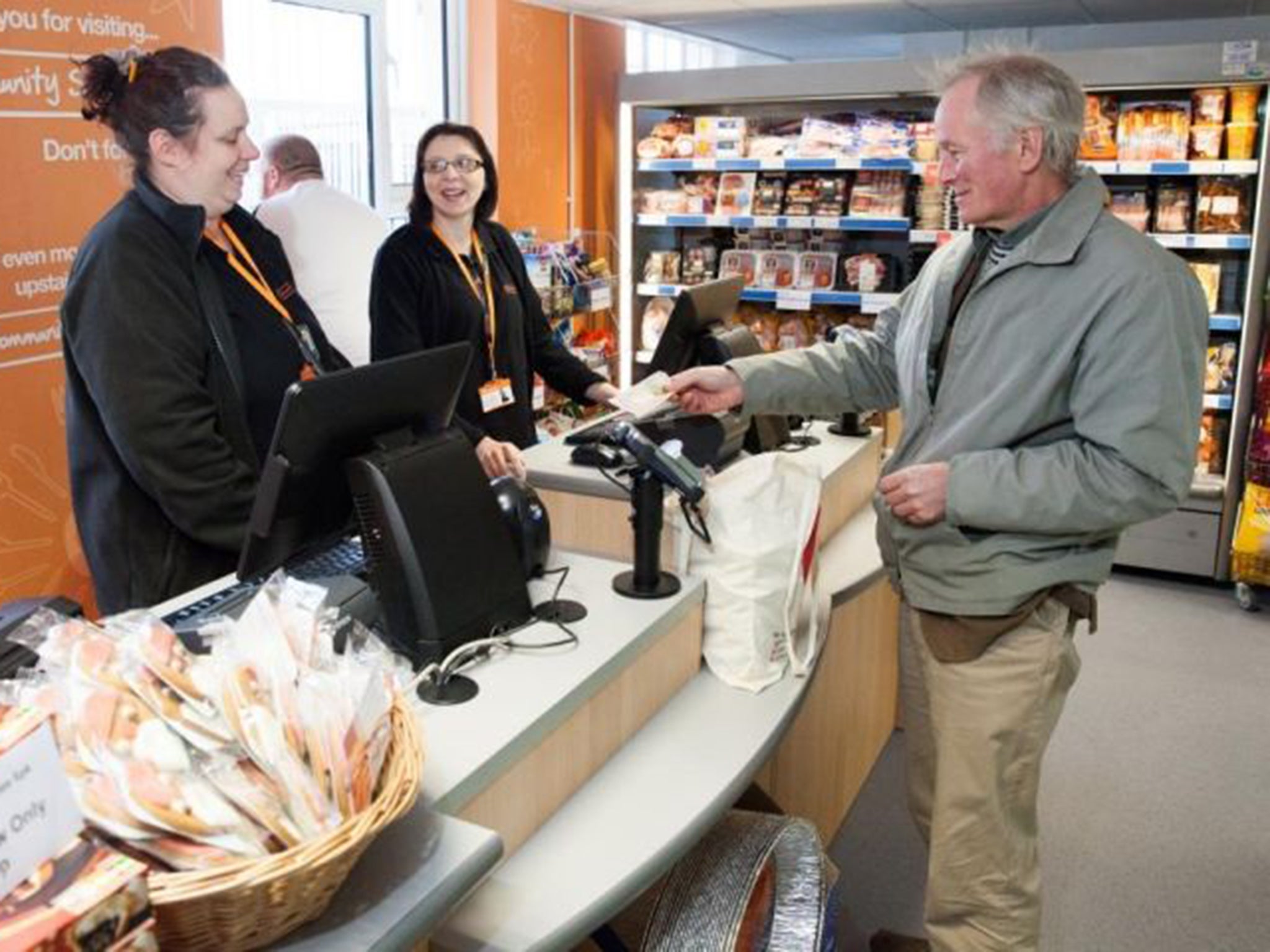Community shop opens to sell surplus food from supermarkets to the poor
London branch marks the start of the national roll-out programme after the success of a pilot store in Goldthorpe, South Yorkshire

Britain’s first “community supermarket” opens for business today, allowing hundreds of struggling families to buy surplus food donated by shops including Marks & Spencer and Ocado at 70 per cent discount – with 20 more planned across the country.
The Community Shop, in Lambeth, south London, will sell low-cost, high-quality surplus food to residents on income support while helping them back into work.
The store will work on a membership basis, with 750 members who must live locally and be on income support. They must also enrol on a tailored professional development programme – called The Success Plan – which aims to improve their confidence and help them find jobs.
The scheme, the first of its kind in the UK, is backed by the Mayor of London, Boris Johnson. The food donated by supermarkets – which may have been over-ordered, mislabelled, or come in damaged packaging – may otherwise have gone to landfill or been fed to animals.
The London branch marks the start of the national roll-out programme after the success of a pilot store, which opened in Goldthorpe, South Yorkshire, in December last year. One in five of this store’s 500 members who completed their training have already found work. It is the first of a planned 20 stores across the country, which aim to help about 20,000 people nationwide.
This model of using unwanted supermarket stock to tackle food poverty was highlighted by the All-Party Parliamentary Inquiry into Hunger in the United Kingdom in its Feeding Britain report as one that should be developed to “make a real and positive difference to people’s living standards”.
John Marren, chairman of Company Shop, which runs the scheme, said: “Community Shop is tackling the problem of surplus food, whilst giving it real social purpose.
“Not only do we offer high-quality, low-cost food to people experiencing tough times, but we provide them with the chance to take up support services because they are motivated to do better.”
Retailers and manufacturers taking part in the scheme include Marks & Spencer, Asda, Tesco, Morrisons, The Co-operative, Ocado, Innocent, Brake Brothers, Nestlé and Muller.
Participants will be given a mentor who will help identify which areas of their lives they need to work on and then agree on a plan to improve their lives. Courses include confidence-building, home-budgeting and writing a CV. These services will be funded by the sale of the food.
It is estimated that around 3.5m tonnes of food is wasted every year in the UK, before it even reaches people’s shopping basket. About 10 per cent is good enough to be eaten.
Work and Pensions Secretary Iain Duncan Smith yesterday claimed that use of food banks in the UK was “tiny” compared to Germany, and rejected claims that his welfare reforms are to blame for the rise in their use.
Join our commenting forum
Join thought-provoking conversations, follow other Independent readers and see their replies
Comments
Bookmark popover
Removed from bookmarks